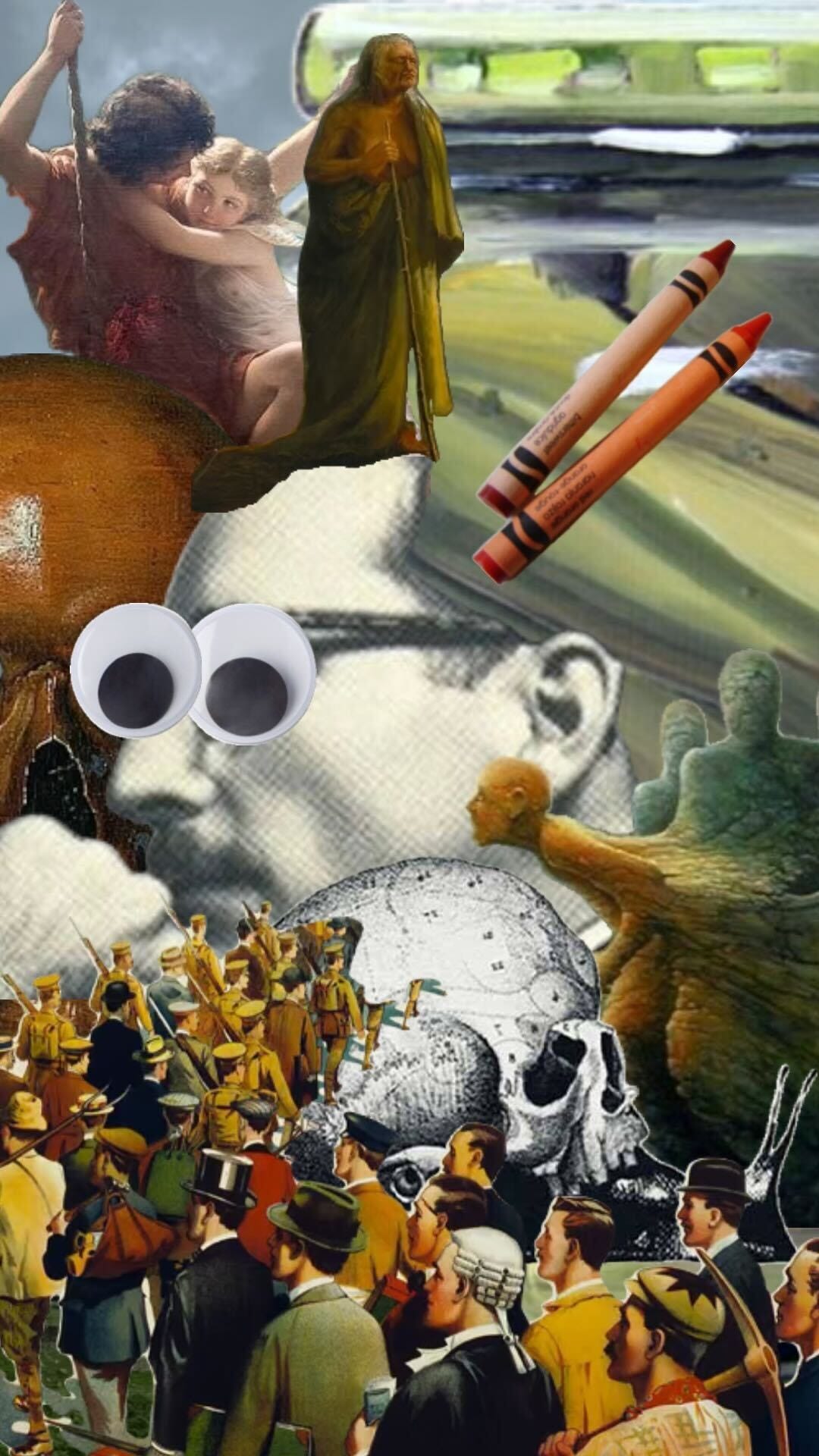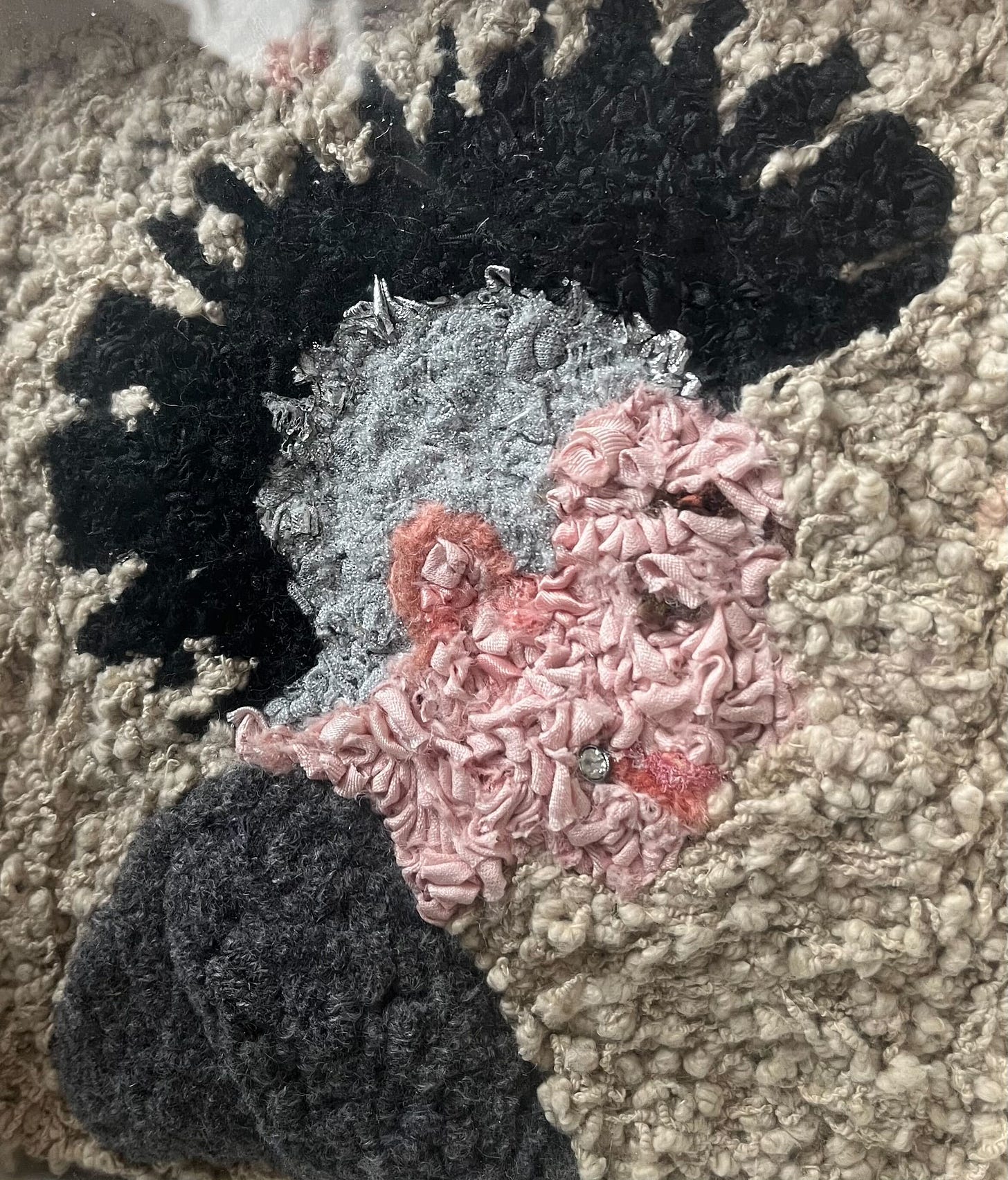Destined for weirdness
Reflections on the roots and cosmic implications of a weird way of being.
The shape of me
As I explored last week, for me weirdness means rejecting conformity, owning (rather than hiding) your idiosyncrasies, and embracing a certain amount of mystery in life.
On the “Big Five” personality traits, I get LOTS of points for openness to experience. I know this because I do the quizzes, not because I have total faith in their accuracy, but because of that very openness - the curiosity is just too much. You’re probably a highly-open person too; why else would you subscribe to a Substack called “Weirdness Wins”? Turns out we literally see and feel the world differently.
Often, non-comformists are high on both openness and extraversion. Not me though - I’m an ambivert at best (and yeah, I agree these categories are flawed, but they’re useful shorthand).
Another key factor in the willingness to say and do weird things is self-esteem. This often gets confused with confidence, but they’re not quite the same.
Self-confidence is about how easily we feel we can meet challenges (and grows as we gain knowledge and practice skills), whilst self-esteem is about our basic sense of our own value.
There are LOTS of areas of life where I’d like to feel more confident, but I’m also able to accept myself as I am. It’s why I spent pretty much all of my 20s single. Last weekend, an old friend and former housemate even told me my general air of independence had been a big influence on her. Thanks Holls! 💜
To go deeper on this whole non-comformity thing, let’s bring in Ernest Becker, American cultural anthropologist and author of the 1974 Pulitzer Prize-winning book, The Denial of Death. He observed that having this inexhaustible well of weirdness inside us, whilst knowing we’ll eventually die, feels like some kind of cruel cosmic joke:
“This is the terror: to have emerged from nothing, to have a name, consciousness of self, deep inner feelings, and excruciating inner yearning for life and self-expression – and with all this yet to die. It seems like a hoax. . . What kind of deity would create such complex and fancy worm food?” (Ernest Becker, The Denial of Death)
For Becker, advancing a cause or creating things that will outlive us is the way through this metaphysical pickle:
Denial of death is achieved by what Becker called striving for the heroic, or in other words attaching ourselves to a purpose, cause, or creation which we believe will outlive our physical existence, thus granting us a form of immortality. There are two main paths to heroism, the path of the nonconformist, or what Becker calls cosmic or personal heroism, and the path of the conformist, which he calls cultural heroism.
The path of the nonconformist consists of cultivating one’s unique potential and using one’s talents and skills in the creation of something novel and meaningful.
“What is one’s true talent, his secret gift, his authentic vocation?” writes Becker “In what way is one truly unique, and how can he express this uniqueness, give it form, dedicate it to something beyond himself?”
Sorry this is such a male-gendered quote, but you get the idea.
Find your thing. Express your thing. Transcend.
How I got my things
Like many of you, I suspect, I felt like an outsider from an early age. At primary school, most kids had been to two or three of the same nurseries as each other, so they all had nice little pockets of connection when they started. I didn’t know anyone well, but soon formed my own weird little crew.
There was a near-perfect pattern-repeat when I stepped up to secondary school. Most of the kids I’d spent the last seven years with went to three or four of the same schools; not one of them went to the school I ended up at. Time to find my people again.
At home, my parents divorced when I was seven. They didn’t have a friendly conversation after that until the day I graduated from university. That was a tough old time, but I now recognise that I’d probably be less creative today if my childhood had been simpler. Surprisingly, I couldn’t find that much research to back up this theory, but this study into the creative experiences of performing artists who experienced childhood adversity feels indicative. As does a cursory survey of the early lives of any number of well-known artists or musicians.
I’m also convinced the experiences of living across two homes - spending every alternate weekend at my dad’s - gave me a gift for being able to shift perspectives. It taught me, at the subconscious level, that there’s more than one reality. My dad was also Dutch, and we spent a lot of time in Holland when I was young - I’m sure that was formative too.
But as I alluded to last week, the single biggest positive influence on my appetite for seeing and doing things differently was my mum. Her main thing is textile art. As a kid, our house overflowed with fabrics of every shade and texture. Big bags bursting with unwanted clothes, ready to be cut into strips and fed into rag-rugs. Piles of rolled-up wall hangings, each metres long. Weird prints, posters, and pots by other artists in every room.
She supplied me with my own abundant art equipment of course, and took me (dragged me, sometimes) to exhibitions big and small. School holidays were filled with mosaic workshops, pot-throwing, and so on.
She’s a stickler for good manners, my mum, so there were certainly limits, but in general, she nurtured anything that looked or sounded like self-expression. When I opted for a mad mohawk as a teenager, she immortalised it in textile form.
While I’m banging on about her, why don’t you check out her beautiful book about women’s empowerment through craft?
Gear-shift alert 🚨
I’ve also experienced acute trauma and related chronic illness - I was burgled at knifepoint, and tied up, in my own home, with my best friend, aged 19. My digestive system has never recovered.
Going back to the Stein Weirdness Triad™ of non-comformity, self-esteem, and openness to mystery, navigating the impact of this incident on my life has contributed more than anything else to that third trait.
There’s only so many fruitless hospital visits, unproductive therapy sessions, and unsuccessful elimination diets a person can handle before they start wondering if their path to healing might need a little more woo. Well, that’s been my experience anyway. Meditation and yoga were my gateway, but who knows where my chronic curiosity will take me.
Who’s in charge here?
Let’s meditate on the word ‘weird’ again for a moment.
Originally, we had ‘wyrd’. As per Wikipedia:
Wyrd is a noun formed from the Old English verb weorþan, meaning 'to come to pass, to become’. Adjectival use of wyrd developed in the 15th century, in the sense 'having the power to control destiny', originally in the name of the Weird Sisters, i.e. the classical Fates, who in the Elizabethan period were detached from their classical background and given an English personification as fays.
The weird sisters notably appear as the Three Witches in Shakespeare's Macbeth… Many editors of the play include a footnote associating the "Weird Sisters" with the Old English word wyrd or 'fate'.
Weirdness mutated from fate. Is weirdness somehow about intervening in the normal teleology of things? Is it about subverting the expected sequence of cause and effect?
Was I always destined to be weird? Does my weirdness now give me some special power to shape the future? Do I even have free will?
I find the idea that I exist in an unfathomable web of interconnections - with people, animals, plants, funghi and far more intangible forces - beautiful and awe-inspiring.
Whilst owning your weirdness is an empowering act of agency, maybe there’s also something to be said for not living at either extreme on the locus of control spectrum. Recognising your power, being accountable, but also honouring your influences, and knowing when to go with the flow and surrender to something bigger.
Until next time, keep it weird x







being able to shift perspectives = code switching = languages of different worlds :)